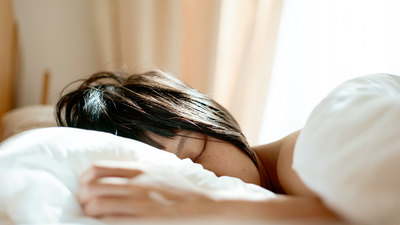Studies show that the ebb and flow of the moon affects human sleep time

The moon, the satellite of the earth, has been regarded as sacred and special since ancient times, and human beings have a history of blaming the moon for their mental states, accidents, and natural disasters. It is not clearly shown scientifically. However, according to a study published by a research team led by Professor Oracio de la Iglesia of the Department of Biology at the University of Washington, it is possible that the moon actually affects human sleep.
Moonstruck sleep: Synchronization of human sleep with the moon cycle under field conditions | Science Advances
On nights before a full moon, people go to bed later and sleep less, study shows
https://phys.org/news/2021-01-nights-full-moon-people-bed.html
The research team used wrist-worn sensors to track the sleep patterns of 98 indigenous peoples in three villages in northern Argentina. Of the three villages, one has no electricity, the second has no electricity to some houses, and the third has the same as a typical city. It was said that electricity was completely flowing.
As a result of the analysis, it was found that bedtime was late and sleep time was short in the village with electricity. Previous studies have also shown that 'an environment where electricity is freely available affects sleep,' so the results in this third village are predictable.
However, data were also shown in all three villages that the bedtime cycle was associated with an age of 29.5 days. The average sleep time fluctuated by 46 to 58 minutes in 29.5 days, and it was said that it vibrated within the range of plus or minus 30 minutes from the average sleep time. In addition, the sleep time was the latest and the sleep time was shortened during the 3 to 5 days until the moon became a full moon.

In response to this analysis, the research team analyzed sleep data from 464 college students in Seattle, Washington, collected in another study, and found that sleep time increased or decreased in response to age, similar to villages in northern Argentina. I found out that I was doing it.
The research team pointed out that the moonlight will brighten even after sunset as the full moon approaches, suggesting that the moonlight may affect bedtime. It also points out that the effects of moonlight are prominent in two villages with insufficient electricity, and that sleep patterns may be adjusted during the half-moon. Since the effect on sleep patterns was also seen during the half moon, the research team thinks that it is possible that it is affected not only by the moonlight but also by other than light such as gravity.

'Future studies need to focus on how the moon influences our circadian rhythm, or some other factor in our sleep cycle,' said Professor Iglesia. '.
Related Posts:
in Science, Posted by log1i_yk







